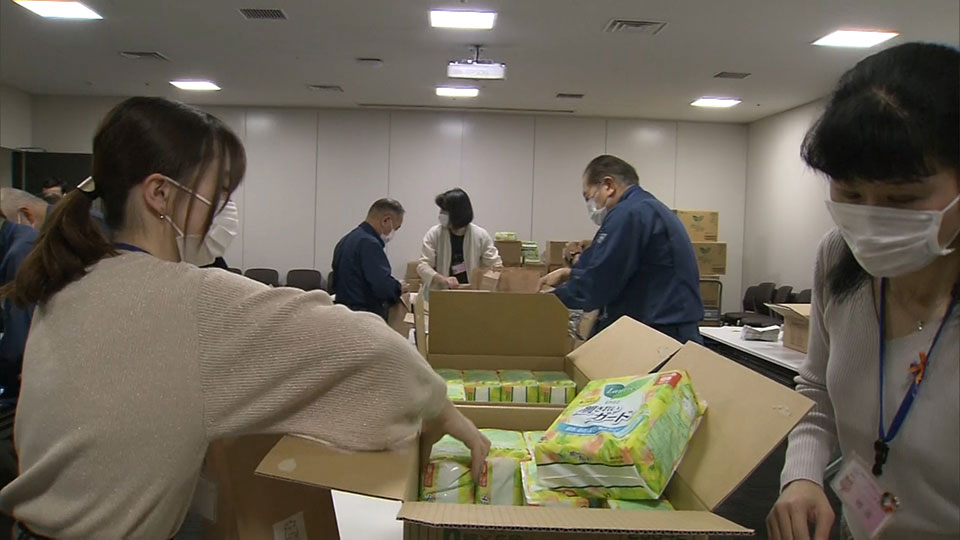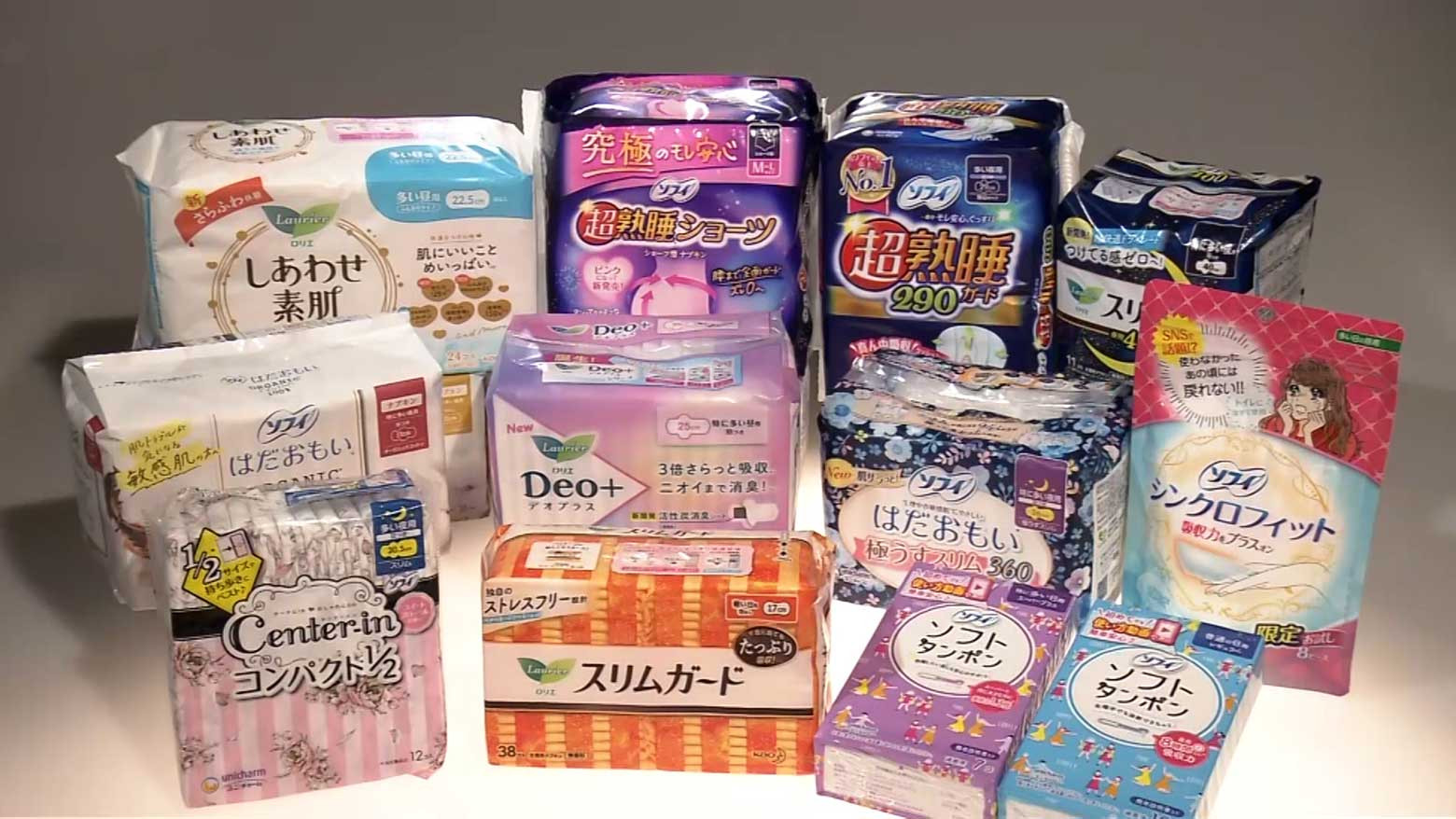Suzuki Riyuka is collecting signatures in the hope of securing free sanitary pads for all schools. She works with the group Minnanoseiri, whose aim is to ensure people don’t lose opportunities because of periods.
Last month, they conducted a survey of more than 600 high school and university students and found that one in five had problems getting sanitary products. About 30 percent said they resorted to using other items, including toilet paper.
Suzuki says the financial burden of buying these expensive but essential items has been exacerbated by the impact of the coronavirus, which has plunged some families even deeper into poverty.
Some respondents in the survey said they cannot buy the pill to ease their menstrual pain because their income has slumped in the last year. Others said they are hoping the price can come down so they can spend more of their budget on other necessities.
One of Minnanoseiri’s missions is to have the government treat sanitary items as necessities and lower taxes on them.
“It has been difficult to raise voices on menstruation issues. It’s often overlooked or ignored, at least in part,” Suzuki says.
Taking cues from other nations
Some lawmakers have already raised the issue in the Diet. The Japanese government decided last week to offer some funding for groups that support women in poverty, including an allocation to buy and distribute sanitary products.
At a local level, official in Tokyo’s Toshima and Adachi wards have been handing out sanitary products they had stockpiled for emergency use.

Suzuki welcomes these measures but worries they are only temporary. She wants Japan to emulate other places, such as Scotland and New Zealand, where these necessities are distributed for free on campuses and in other public spaces.
“In our research, nearly half the students said they have trouble attending school, either having to skip days or arrive late, during menstruation,” she says. “This is not about pregnancies or being more productive, but about respecting a person’s dignity.”
Not just an economic issue
Suzuki says some people have trouble accessing hygiene products for reasons unrelated to finances.
“Some children have been neglected due to family problems, and that neglect has made it difficult to access sanitary products,” she says. “And one student said she couldn’t buy pills to lessen the pain because her mother was against it,” she says. In Japan, some people believe that period pain should be endured without medicine, and that the pill is used solely to avoid pregnancies.
Suzuki says tackling the lack of knowledge and information will remain a challenge so long as discussing menstruation remains a social taboo.
“I want to change the image of periods for the better,” she says. “I want to help people get a better understanding. To increase knowledge is to lessen prejudice.”
Watch video: 3:13

